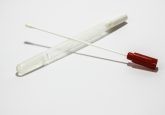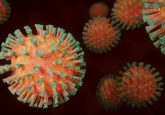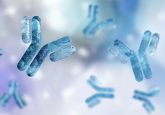A novel SARS-CoV-2 vaccine without adverse effect: naked mRNA with jet injection

Scientists have developed a new carrier-free system for mRNA vaccines against SARS-CoV-2, generating robust immunity without adverse systemic proinflammatory responses.
A research team led by Satoshi Uchida and Kazunori Kataoka from the Innovation Center of NanoMedicine (Kawasaki, Japan) and Tokyo Medical and Dental University (Japan) has devised a novel carrier-free method to deliver mRNA vaccines targeting SARS-CoV-2. This new method was published in Molecular Therapy.
mRNAs are highly unstable molecules and typically require a carrier, such as lipid nanoparticles (LNPs), to protect the administered mRNA from enzymatic degradation in the body. The mRNA vaccines broadly used during the COVID-19 pandemic utilized LNPs as the delivery system due to their favorable pharmacokinetic properties and ability to protect mRNA from enzymatic degradation and facilitate intracellular delivery.
However, one major disadvantage of LNPs is that they possess immunostimulatory properties and can be reactogenic. Although there is minimal occurrence of severe adverse effects for mRNA LNP vaccines, there is still a need to reduce reactogenicity to enhance the overall efficacy of mRNA vaccines. A carrier-free method could be the solution.
Previously, carrier-free mRNA vaccines were challenging because of their poor stability and inefficient cellular uptake of mRNA in the skin, which contains an abundance of immune cells. In the current study, the Japanese team proposed a new needle-free, pyro-drive liquid jet injector (PYRO) to deliver naked mRNA into skin cells through applying physical stress induced by jet flow. This approach precisely controls the injection pressure using a bi-phasic explosion localized to specific sites. It can also be optimized depending on the thickness, elasticity and viscoelasticity of skin injection sites.
You may also be interested in:
- Top industry updates for vaccine development
- New vaccine found to be key to Alzheimer’s prevention
- Therapeutic RNAs: past, present and future
The scientists tested this new delivery system in infectious disease models, including in mice and non-human primates. Promising results were observed in both models: robust antigen-specific antibody production was observed over 6 months in mice, and all non-human primates elicited efficient viral neutralization. More importantly, there was no sign of reactogenicity and toxicity in the observed animal models throughout the whole study period.
Ultimately, the naked mRNA vaccine paired with PYRO could reduce systemic adverse reactions and, at the same time, offer sufficient immune protection from infectious diseases.
Looking ahead, the group believes that this new carrier-free vaccine will serve as an innovative platform that allows larger mRNA dosages, repeated application, precise delivery and limited adverse effects. Follow-up studies are now being conducted and the team aims to launch a clinical trial in 2026.






